Daryl Impey (GreenEdge) was in danger of being remembered as the rider who suffered a horrific crash in the final metres of the Presidential Tour of Turkey in 2009 with the yellow jersey on his back – the podium substituted for an ambulance, that day.
Chris Froome will go down in the record books as Great Britain’s second Tour de France winner, But whilst the slim man who now lives in Monaco may have GB next to his name in the record book – he’s originally from Kenya by way of South Africa and his win is a huge shot in the arm for cycle sport in the Dark Continent.
But Froome was beaten to the punch as the first African in yellow by a man whose passport still declares ‘Republic of South Africa.’
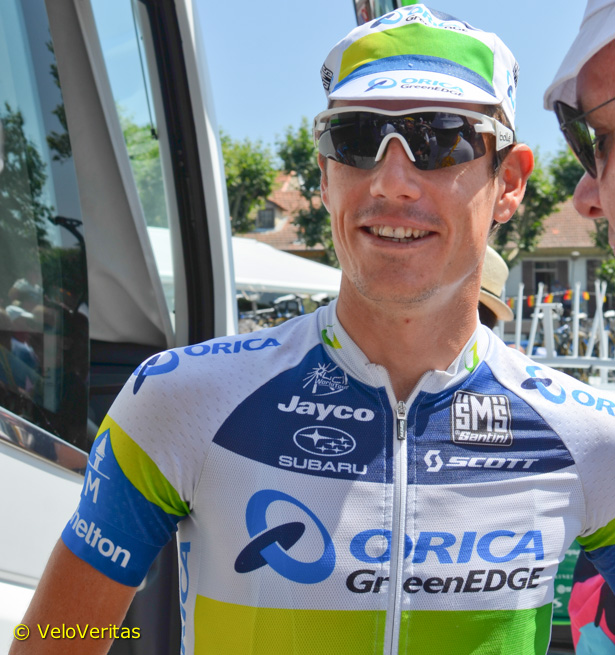
But no longer.
Now, he’ll be remembered as Africa’s first maillot jaune – with that Turkey crash just part of a career where the South African always bounces back from injury and set back.
His Barloworld team – for whom he rode the 2008/9 seasons – folded.
However, a contract with RadioShack took him back up to the sport’s highest level for 2010.
But just twelve months later, he was down at Continental level with South African team MTN Qhubeka – who threw him a lifeline after his contract with stillborn Australian ‘Pro Tour’ outfit Pegasus proved not to be worth the paper it was written on.
MTN were the team he originally turned professional with in 2007.
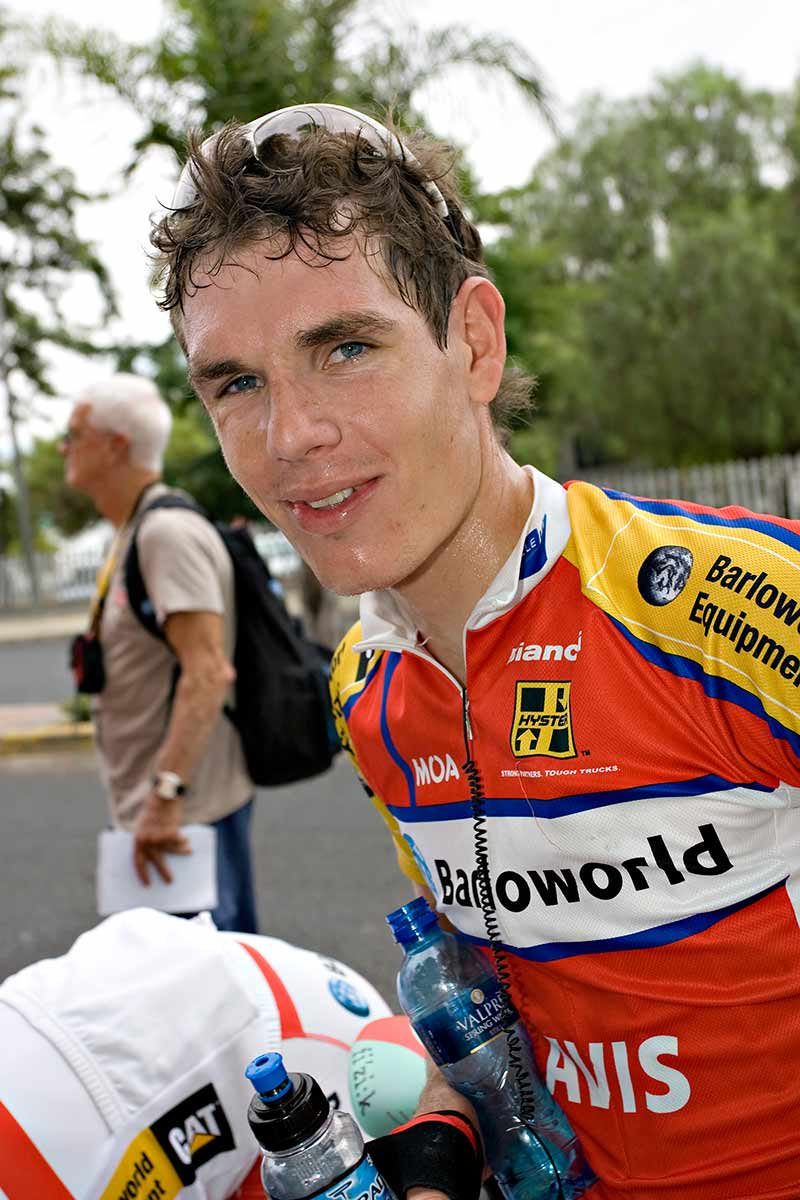
His 2011 results with that squad – including a stage win and second on GC in the Tour of Morocco – saw Pro Continental squad NetApp offer him a contract, and in the autumn it was back to the top division when he signed with fledgling Australian Pro Tour team, GreenEdge.
In April of 2012, in the second stage of the Vuelta Ciclista al Pais Vasco from Guenes to Vitoria-Gasteiz, the 28 year-old from Johannesburg grabbed his first World Tour win.
And he added a stage in the Tour of Slovenia for good measure.
His remarkable ‘rebirth’ continued in that year’s Giro d’Italia as he achieved his ambition of riding a Grand Tour.
Impey didn’t finish the Giro; the team deciding to pull him out after stage 16 – not to take too much out him in anticipation of a Tour de France ride.
He did his job in France and duly finished the hardest race in the world.
This season saw him win the Republic of South Africa Time Trial Championships; Stage Two in the Pais Vasco, again; a stage in the Bayern Rundfahrt; the TTT in le Tour – and now the maillot jaune.
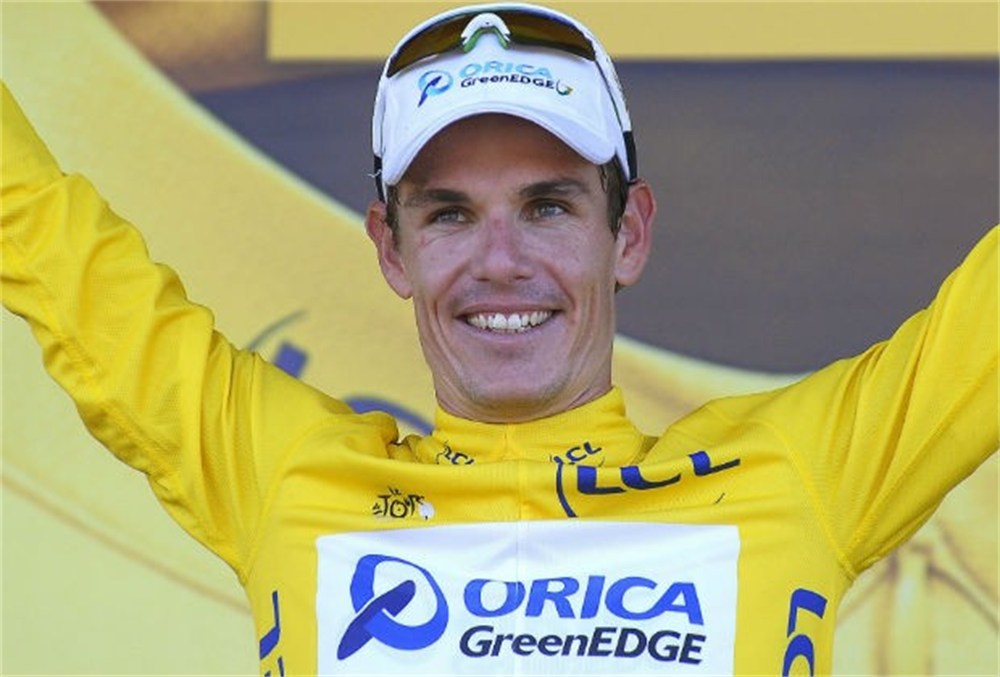
And to boot, he’s another one of the ‘good guys.’
We caught up with Daryl at his Girona home a few days after he finished his history making Tour de France.
Congratulations, Daryl – how was the post race party?
“Yeah, we had a good time; but it was a bit like the 22nd stage – it was definitely late when we got to bed!”
Dreams do come true…
“Definitely; there are lots of good riders out there who have never had the opportunity to wear the yellow jersey, I feel fortunate, honored to have worn it.
“The team time trial set things up nicely for us and then Simon Gerrans gave me the opportunity to share in the joy of wearing yellow – I was very, very proud.”
I hate to mention it – the bus on Stage One!
“That was our first victory!
“Seriously, it was unfortunate but out of our control – our driver was running late and the ASO people told him to come ahead . . .
“There was a lot of talk that it was the bus getting stuck which caused the sprint chaos – but I’m not so sure, the first stages are always crazy nervous and there are always crashes, too.”
Isn’t a prologue better – to sort out the pecking order?
“The sprint stage opener was certainly different; a prologue might not be as exciting but it does settle things down – especially if there are no sprint bonus seconds.
“A prologue is a different atmosphere but I can’t really complain about things being judged on stage placings – that’s what got me the yellow jersey!”
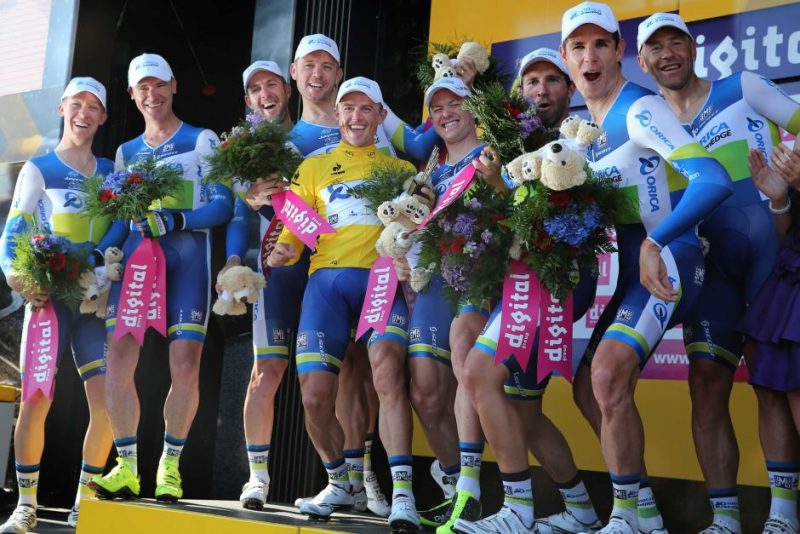
Did you expect to win the TTT?
“We’d have been happy with a top five placing; we hadn’t done anything special to prepare for it.
“But we were very smooth and Simon Gerrans having won his stage boosted all of our morale by about 10% so we were all super-motivated.”
Is it true that the yellow jersey makes life easier in the peloton?
“You get more respect, yes – and it’s easier to move around in the bunch and find space.
“But I don’t think there’s as much respect in the peloton as there used to be – for instance, you see guys attacking when the maillot jaune stops for a pee.
“But I have to tell you that the team was brilliant during the time I was in yellow – they all gave that bit extra.”
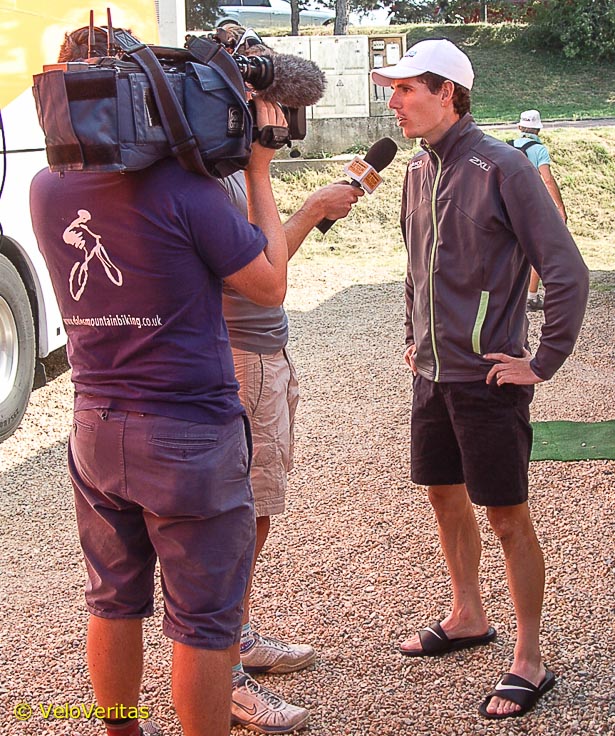
How has the South African Media been?
“Very receptive, they’ve been calling me constantly – I’ve made all the front pages.
“They even had ‘Yellow Friday’ where everyone wore yellow in my honour.
“Pulling on that maillot jaune really was a magical moment.”
Tell us about the QuickStep crosswind ambush day.
“Initially I was OK because I made the first split but I lost concentration a little bit and when Saxo went again I missed it.
“Saxo and QuickStep are very experienced and played their cards perfectly – they put Sky in trouble but Froome was just too strong in the hills.”
How was the Ventoux?
“It was cool for me because I was in the break and had three or four minutes advantage going in to the climb – Chava pushed on but I was pretty much able to cruise it and save a little for the next stages.
“The crowds on the Ventoux and L’Ale d’Huez were special.”
Orange Corner?
“Everyone warned me about it – it was just a wave of orange with beer running down the road.
“The atmosphere was massive you forget the pain and just get swept along in it.
“It just shows how colorful and exciting the sport is with the right fans – it was special.”
What about Monsoon day on the Croix Fer?
“That weather kinda crept up on us, the stage started in nice weather; I was OK that day in a group with Simon Gerrans and we just rolled through it.
“It was tough for Svein Tuft that day but Stuey O’Grady rallied round him and helped him home.”
What was your toughest day?
“L’Alpe d’Huez as well as the climbs, it was a really long day on the bike – I was exhausted that day and the time cut was an issue.
“There were a lot of stressed guys on the road, that day.”
How about punctures and crashes?
“I was very lucky; I got through the whole Tour with just one puncture.
“And I only had one crash – that was on the Marseille stage going uphill so it wasn’t too bad.
“It makes a difference in the last week if you haven’t been bashed around too much in the first couple of weeks.”
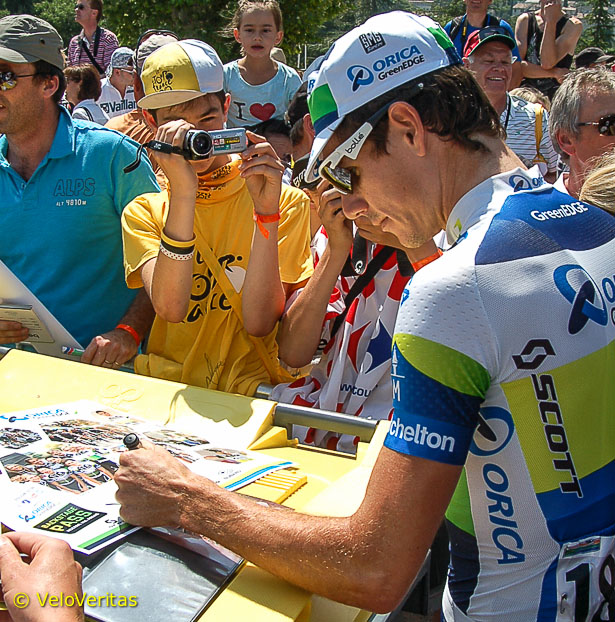
Don’t the ‘Froome Rumours’ get you down?
“I think that the criticism is unfair; he’s part of a new era – you can’t paint riders from this era with the same brush as riders from previous times.
“Chris Froome has worked hard to make the progression he has – a lot of the critics don’t know what they’re talking about.
“He dealt with it well; he understands that people are going to bring up the sins of riders from other eras – but the past is the past.
“It’s down to riders of our generation to restore people’s faith in the sport.”
Regarding the next question: this interview was conducted prior to Stuey O’Grady being named in the French Senate report into the 1998 Tour but after he’d announced his retirement from the sport.
How will life without Stuey be at GreenEdge?
“Stuey was always a great asset to the team – a great road captain.
“He always had a spare moment for you and I only have good things to say about him.
“He’s an advocate of hard work; he had a great work ethic himself and was totally reliable – a guy you’d go to war with.
“He’s had a long career and done it all.”
How’s ‘Post Tour Reality?’
“You turn into a ‘Tour Animal’ so it’s kind of strange having to do your own washing – and stopping bossing people around!
“But it’s nice to realize that you don’t have to rush your meals because you don’t have to go to massage or bed – so it’s good to be home.
“But it was a Tour I’ll never forget, wearing the maillot jaune and then the finale and presentations on the Champs Elysees in the twilight – you wish you had maybe tried to take it in more at the time …”



